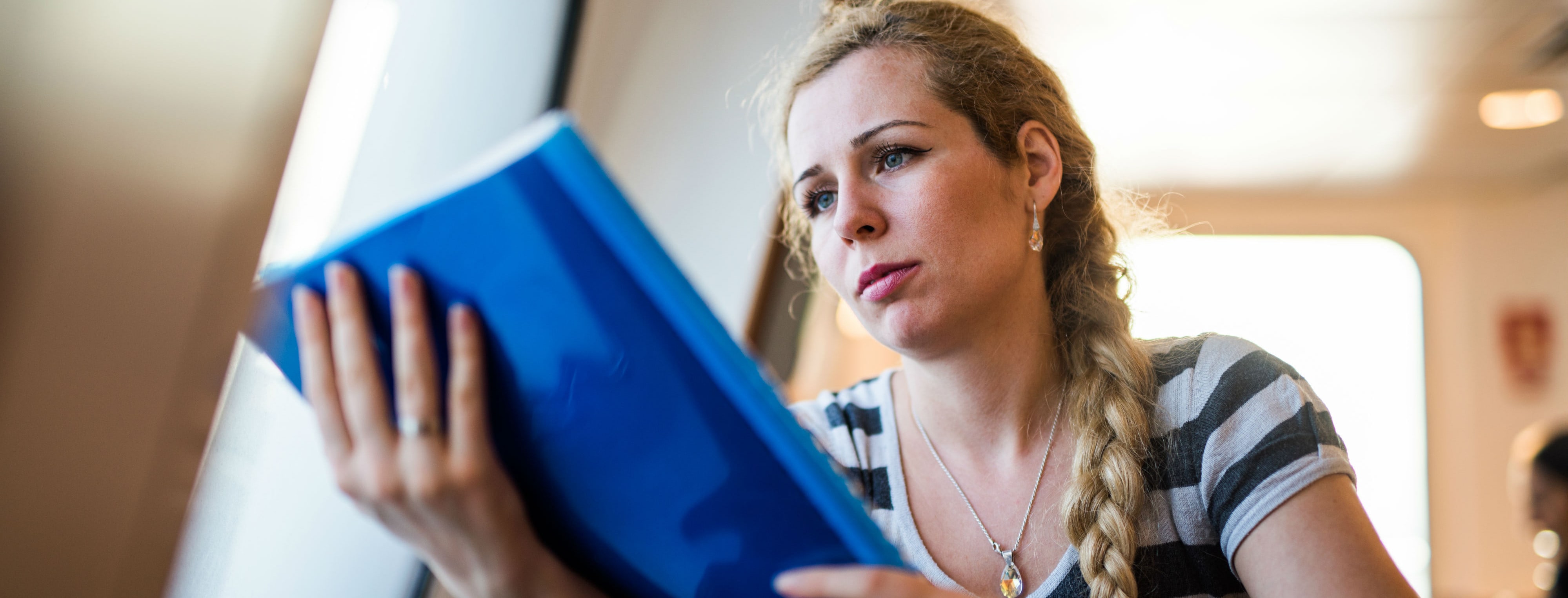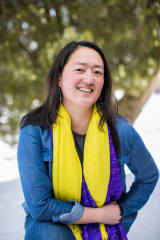What to Look For in a PhD Supervisor
A PhD student will spend years conducting research, learning, and studying, most often on their own, working steadily and independently. Completing a PhD program seems like a daunting undertaking! However, under the right supervisor, or advisor, you’ll be able to make the most out of your PhD experience and graduate with satisfying results. Here are some key things to look for in a PhD supervisor and factors to consider as you do your research on finding the best PhD program in your field of study.
- Student Tips

“Education is the passport to the future, for tomorrow belongs to those who prepare for it today,” said Malcolm X, American civil rights activist and minister. Nothing could be more true -- education can open doors for you, both personally and professionally. A solid educational foundation, in a degree program that is rigorous and fosters excellence, is one of the keys to your success. Particularly, a PhD student will spend years conducting research, learning, and studying, most often on their own, working steadily and independently. Completing a PhD program seems like a daunting undertaking! However, under the right supervisor, or advisor, you’ll be able to make the most out of your PhD experience and graduate with satisfying results.
Being supported in your studies by a caring and attentive supervisor is what should be expected in any degree program, but especially in a PhD program. However, this is not always the case, so here are some key things to look for in a PhD supervisor and factors to consider as you do your research on finding the best PhD program in your field of study.
1. Meet your potential PhD supervisor in person, if possible
If possible, it is highly recommended you take the time to travel and meet your potential supervisor in person before you commit to a PhD program. Research shows the supportiveness of your supervisor matters, and might not actually match up with whether or not the supervisor is an award-winning author or researcher, according to SI News. What matters most might actually be if your two personalities mesh.
Taylor and Francis Group’s research supports this claim. It explains, “Taken together, we find that supervisor supportiveness is the greatest predictor of PhD student satisfaction, but that supervisor academic qualities have no significant effect. However, both the academic qualities and supportiveness of departments significantly predict PhD student satisfaction, suggesting university departments and PhD supervisors would ideally work jointly, and perhaps more closely than many currently do, to achieve competitive levels of PhD student satisfaction.”
Meeting your potential supervisor in person before you enroll allows you to gauge whether or not you’ve got chemistry. It’s not dating, but in many ways it resembles it. For example, when you’re stressed out, or your research isn’t going well, and you can’t see which direction to go in, can this particular person pull you out of your own black hole? Susan Greenfield, professor of physiology at the University of Oxford, advises, “The real issue is to see whether the chemistry is right. Think about whether your prospective supervisor seems like the sort of person who will be there when you need them.” Intellectual and emotional support -- being able to listen and bounce ideas back and forth -- is vital to the success of PhD candidates.
Make a list of questions before your in-person or virtual meeting. These questions will help you determine how seriously this person takes your work and your candidacy in the program. You’ll also both get a better idea of your expectations.
2. Check your future PhD supervisor’s credentials, research interests, and publications
The PhD supervisor should be an expert in the field of study you are interested in pursuing for your PhD degree. It seems obvious but this reminder to pay attention to your supervisor’s credentials, research interests, and publication track record, is not to be taken lightly. The popular saying it’s not rocket science! actually does apply to this situation. You do want to work with the top expert astrophysicist, especially if you are going to study astrophysics. Don’t you think?
Kate Langin explains in Science, “The reality is that, in the long term, a reference letter from a well-known professor -- and a degree from a top-notch university -- can give PhD holders a boost when they’re searching for a job. According to a 2015 study, 25% of U.S. institutions produce roughly three-quarters of all tenure-track faculty members in the three disciplines the team examined: computer science, business, and history.” A PhD supervisor with top-notch credentials likely also has excellent networking capabilities and knows the who’s who in your field of study. They should be able to advise you in the next step of your career.
Do your research. Read your potential supervisor’s academic papers and publications. Search the internet for interviews and find out more about this person. Consider even talking to people who have worked with this supervisor in the past, or ask people who know this person about their work habits, temperament, and teaching style. Ask the right questions: How does s/he approach organization? How many meetings are expected over the course of the semester? What are the deadlines? And so on.
Matthew Killeya, for the NewScientist, interviewed some PhD students and shared their experiences. Carlos Alegria, who has completed not just one but two PhDs, in physics and then finance, says, “Immediately after my first PhD, I thought the most important thing I took from my supervisor was technical knowledge. [...] Now it is clear to me that I learned much more. Even rejected papers, negative feedback and personal problems can all add up to an invaluable lesson in life.”
3. Learn about your supervisor’s leadership style and level of professionalism
“My graduate adviser became a close friend immediately and we’ve stayed close for 30 years now,” says Steven Pinker, professor of psychology at Harvard and best-selling author. “Several of my former students also remain close friends. Two of them were the official witnesses at my wedding.” Your supervisor's leadership style and level of professionalism play a big part in your overall experience as a PhD student.
The Rozenberg Quarterly published research on what effective PhD supervision looks like. Their study defined six types of relationships between student and PhD student: 1) delegation; 2) the friend; 3) the expert guide; 4) the coach; 5) the quality controller; and 6) the editor. Each one has its own category of leadership style and management and shows what you might be getting into with your future PhD supervisor. If you know yourself well, and what type of manager or supervisor you respond best to, keep these six broad categories of PhD supervisor in mind when you are applying for programs.
Kate Langin adds, “To figure out what a professor’s approach to advising is [...] ask a lot of questions of prospective advisers and their advisees when they’re interviewing. For example: “How do they work? Do they check up on you a couple times a week, or do they give you a task and they’re OK not hearing from you until you complete it?” Prospective students will differ in their specific preferences, but overall, it’s probably best to find a balance and avoid overly hands-on and overly hands-off advisers.” You don’t want to be the unlucky PhD student with a bad supervisor nor have your relationship end up being toxic. Good supervision can make or break your PhD experience so make sure you vet your program and do your research!
The old adage knowledge is power can be applied to choosing your PhD program, and perhaps, more importantly, to choosing your PhD supervisor. Pay attention to the details, do your research, and make sure you find both the best fit program and the perfect supervisor who will help you succeed in your dream of becoming an expert in your field of study!
Find your perfect program
Use our search to find and compare programs from universities all over the world!
PhDStudies
S.M. Audsley
Author
S. M. Audsley is a freelance writer and poet who lives and works in Vermont, a small but mighty state in the United States. She is an avid outdoor enthusiast and a lover of potlucks.
Find a program in these categories


